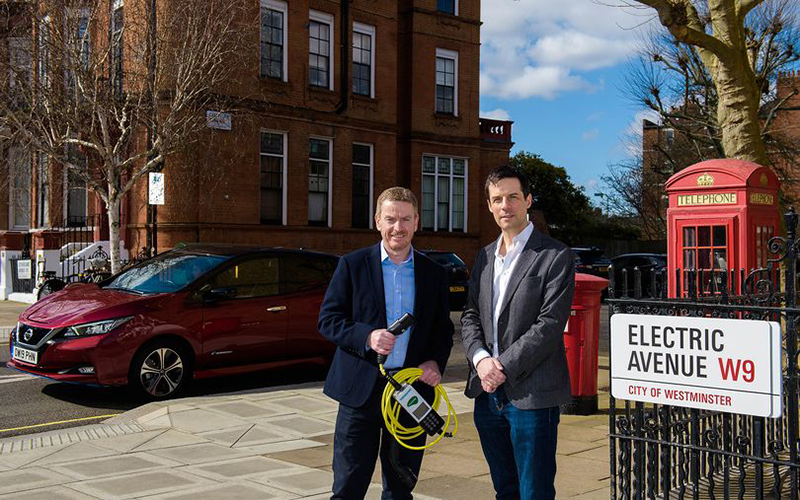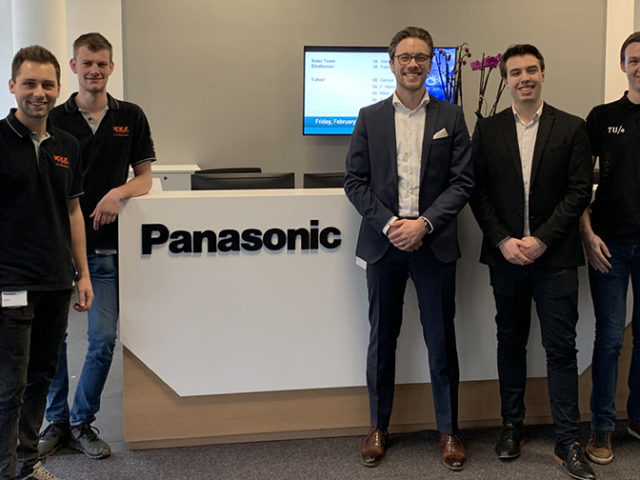A former Rochdale schoolboy who left school at 16 and is now the CEO of a global technology giant is calling on more youngsters to think about so-called STEM (science, technology, engineering, and mathematics) jobs.
Carl Ennis began an apprenticeship as a teenager but has since risen up the ranks at the global firm.
Carl Ennis, the CEO of Siemens’ Great Britain and Ireland division, took up an apprenticeship when he walked out of the school gates for the last time. He went on to complete an engineering degree with his then employer and, 32 years later, he is a senior executive at a global firm which employs more than 300,000 people around the world and has a market value of around £75bn.
Ennis told a special episode of The Northern Agenda podcast – dedicated to the topic of solving the STEM skills shortage – that the challenges of getting young people into engineering remain the same now as they were three decades ago. And there is now a shortfall of some 170,000 workers in the area, reports the Manchester Evening News.
“I was brought up in Rochdale, “he said. “And I am the CEO of Siemens now, but when I set off and left from school my aspiration was to be a car mechanic, so I think somehow, I failed.
“But I set off and I left school at 16 – education at 16 was not for me – and I took an apprenticeship route. But then I was very lucky to have a very supportive employer who helped fund me through my further education ultimately, through my degree, which I took at Manchester Met.
“And then through that point, I was able to balance this real-world experience with the education I’d gained to position myself and it only took me 32 years to get to a CEO level.
“So, some of our students think they could do it quicker. It’s great that they’ve got that ambition – the reality is it takes time.
“Is it any easier now? I don’t think it’s probably any easier or more difficult, what still remains the same is the perception of engineering.
“You speak to many in the public and they will see it as hard physical labour and by the way, some of it is. But actually, it’s also a route into really interesting jobs that are solving todays and tomorrow’s challenges that the world faces and are really involved in in social change.
“Siemens got heavily involved with the ventilator challenge when we were at the beginning of the COVID crisis. So, we really made a difference using software technology and hardware technology to do that.
“Sometimes we don’t paint the real opportunity of engineering and as employers that’s my task to do that, and I need to do it better. I think making it an attractive place to come and work remains the challenge – it was a challenge then and it still is now.”
Last year a group of over 150 world-leading engineers, scientists and technology giants, led by the Institution of Engineering and Technology, called on the UK government to plug the nation’s growing STEM skills gap, which is estimated to be costing the economy £1.5bn per year. They appealed to the government to work together with educators and industry to develop practical support for teachers of young children and to embed engineering in their existing STEM learning.
The letter called on ministers to help secure the UK’s future as a nation of innovators. Ennis said hundreds of thousands of engineers were needed in the coming years.
“To realistically address the decarbonisation, the net zero challenge, we need a lot of capabilities that are fundamentally underpinned by STEM subjects and the task is large,” he told the podcast.
Riffat Wall, the principal at Urmston Grammar School in Greater Manchester, is also determined to do something about the problem.
“You speak to many in the public and they will see it as hard physical labour and by the way, some of it is. But actually, it’s also a route into really interesting jobs that are solving todays and tomorrow’s challenges that the world faces and are really involved in in social change.
“Siemens got heavily involved with the ventilator challenge when we were at the beginning of the Covid crisis. So, we really made a difference using software technology and hardware technology to do that.
“Sometimes we don’t paint the real opportunity of engineering and as employers that’s my task to do that, and I need to do it better. I think making it an attractive place to come and work remains the challenge – it was a challenge then and it still is now.”
Last year a group of over 150 world-leading engineers, scientists and technology giants, led by the Institution of Engineering and Technology, called on the UK government to plug the nation’s growing STEM skills gap, which is estimated to be costing the economy £1.5bn per year. They appealed to the government to work together with educators and industry to develop practical support for teachers of young children and to embed engineering in their existing STEM learning.
The letter called on ministers to help secure the UK’s future as a nation of innovators. Ennis said hundreds of thousands of engineers were needed in the coming years.
“To realistically address the decarbonisation, the net zero challenge, we need a lot of capabilities that are fundamentally underpinned by STEM subjects and the task is large,” he told the podcast.
Riffat Wall, the principal at Urmston Grammar School in Greater Manchester, is also determined to do something about the problem.
“So while schools can do a lot, working with employers is incredibly important, I think we’ve also got to look at why is that in our society in British society, we don’t seem to put the same value on certain types of careers.
“Again, in schools, what we tend to find is we have lots of students who want to be doctors, dentists because it’s subjects and careers that they know about. But what they don’t know is all the other careers that are out there as well that can be equally rewarding.”




